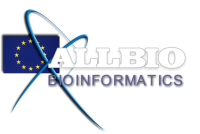
If you are interested in participating this Coordination Action please contact us!
This is an old revision of the document!

SLU (Sveriges lantbruksuniversitet – Swedish University of Agricultural Sciences) is a university with a clearly defined role in society: to take responsibility for the development of learning and expertise in areas concerning biological resources and biological production. This responsibility stretches over the wide-ranging fields of agriculture, forestry and food industry to environmental questions, veterinary medicine and biotechnology. A comprehensive viewpoint, inter-disciplinary approach and applicability are keywords in SLU's research and teaching and in the contacts with industry and society.
University activities are spread between several departments in four faculties: the Faculty of Landscape Planning, Horticulture and Agricultural Science, the Faculty of Natural Resources and Agriculture Sciences, the Faculty of Veterinary Medicine and Animal Science and the Faculty of Forest Sciences. A total of 3 200 people are employed at the University.
SLU offers a broad spectrum of educational programmes and single subjects courses. About 3 300 undergraduates and 800 postgraduate students are enrolled at SLU.
Main campuses are located at Alnarp, Skara, Ultuna and Umeå. Research and teaching activities are carried out throughout the country.
Associate Professor Erik Bongcam-Rudloff, is a doctor in medical sciences and a computer scientist.
COMMISSIONS: ONGOING • Coordinator of the FP7 project ALLBIO: “Broadening the Bioinformatics Infrastructure to unicellular, animal, and plant sciences” (http://www.allbioinformatics.eu ). 2011-2014. • Coordinator COST Action: Next Generation Sequencing Data Analysis Network” SeqAhead, www.nextgensequencing.org 2011-2015 • Board Member of the International Society for computational Biology (ISCB www.iscb.org ), 2012-2015. • Executive board member of EMBnet, 2010-2013. • Board member BILS (Bioinformatics Infrastructure for Life Sciences, Sweden: http://www.bils.se/ ). • Coordinator WP7 in the EU FP7 Affinomics project, www.affinomics.org, 2010-2014 • Board member of UPPMAX, Uppsala Multidisciplinary Center for Advanced Computational Science (UPPMAX). UPPMAX is a regional center for high performance computing. UPPMAX is part of SweGrid. www.uppmax.uu.se. • Board member of the National Supercomputer Centre in Sweden (NSC). Linköping, Sweden. www.nsc.liu.se • Editor in Chief for EMBnet.Journal since 2000. http://journal.embnet.org/ • Director of eBioinformatics.org creators of eBiotools and BioX. www.ebioinformatics.org. • PAST • Chairman of EMBnet, a science-based group of collaborating bioinformatics nodes throughout Europe and a number of nodes outside Europe. www.embnet.org. 2003-2009. • Executive board member of EMBRACE, a FP6 funded Network of Excellence, which encompasses computational biologists from 17 institutes in 11 European countries. www.embracegrid.info. 2005-2010. WP4 Coordinator. • Member of the WP4 in the ESFRI BBMRI project. www.bbmri.org • Member of the WP10 in the ESFRI ELIXIR project http://www.elixir-europe.org/ • Coordinator WP4 Eurokup, EU COST action. www.eurokup.org
SOFTWARE DEVELOPMENT: The Bongcam-Rudloff group has developed web-based bioinformatics analysis systems and desktop applications.
Desktop applications: • eBioTools: is a collection of more than 300 open source bioinformatics programs, www.ebioinformatics.org. • eBioX: A highly popular graphic user interface for the eBiotools programmes. eBioX brings easy-to-use sequence analysis to Mac-using biologists. www.ebioinformatics.org
WEB-BASED ANALYSIS SYSTEMS: • Evaller: In collaboration with Livsmedelsverket: http://www.slv.se/en-gb/Group1/Food-Safety/e-Testing-of-protein-allergenicity/e-Test-allergenicity/ • eBioKit: eBioKit is a compilation of online open source databases and software hosted on the same server and connected to educational resources. Test site: http://ebiokit.hgen.slu.se. • MolMeth: MolMeth is a structured database that provides free access to methods used in molecular biology and molecular medicine: www.molmeth.org. • SeqScoring: Use the information to score mutations found by large re-sequencing projects. Finds positions for conserved elements among different species and present the results on a graphical way: www.seqscoring.net.